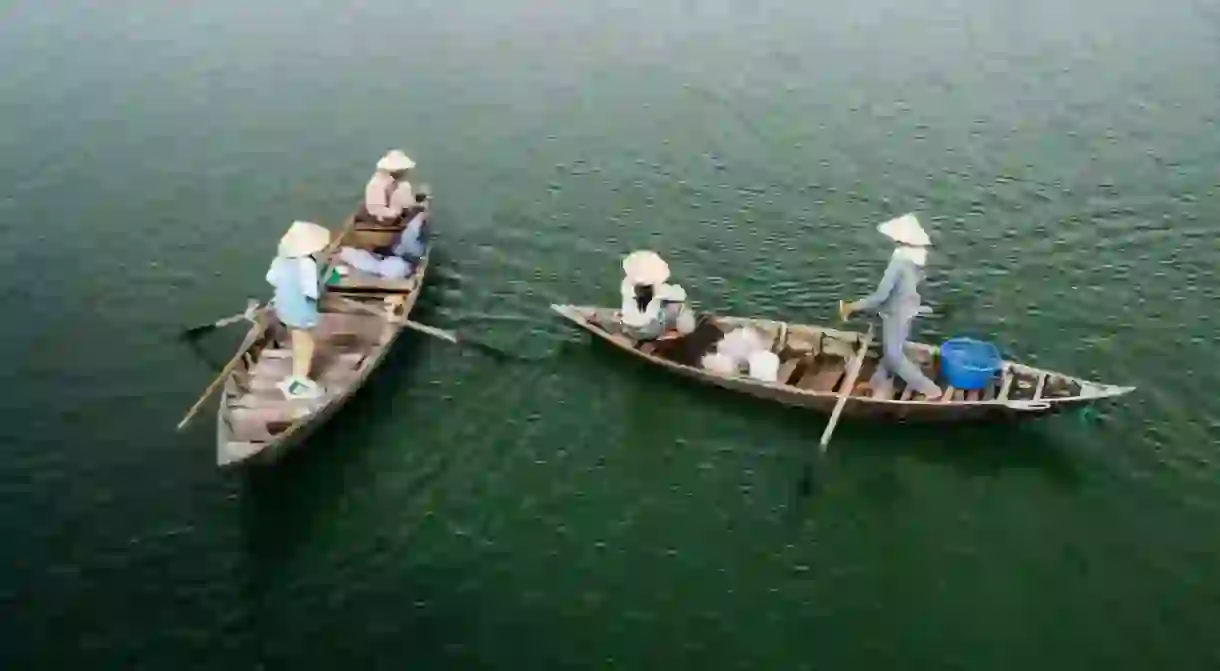Life on The Water in Hoi An, Vietnam

Even before the 15th century when Japanese, Chinese and French merchants first sailed to Hoi An, the Thu Bon River, meandering inland from the East Sea, provided a way of life for an untold number of Vietnamese. While tourism has replaced trade, the 17th and 18th century architecture of the old town remains and the river continues to inject life into the region.
Today, tour boats lazily wander along the banks where merchant ships landed centuries ago. Both private trips and larger groups provide an essential boost to the changing economy. Smaller wooden sampans travel along the edge of the old town while larger boats head out on sunset cruises toward the mountains on the western horizon.

A fishing culture
The brackish water of the Thu Bon is ideal for a number of fish species and fishing remains a fundamental source of food and income for many. Large nets strung to bamboo rods hang down over the river waiting to be dropped and filled once more.



Changing industries
Just as on dry land, tourism is by far the biggest economic factor all along the Thu Bon River. Hundreds of sampans patiently await the next group of travellers. These trips range from an hour to two or three and provide a very unique view of the hanging lanterns of Hoi An.



Long hours
After hosting a dozen different groups each day, the sampans are in constant need of cleaning and repair. The guides spend any down time scrubbing and preparing for the next morning.


Traditions of the past
Others continue to fish up and down the waterway. As tour boats pass by and cameras click, they toss large nets into the shallows of the slow-moving river. The process is strenuous and time consuming, yet time-tested and fruitful. Their catch is most often sold at market in Hoi An.



The rice factor
Rice remains the staple food all across Vietnam and the Thu Bon River does its part to help. Beyond the central tourist areas, along the banks of the river, flooded rice patties continue to be farmed. Water buffaloes stride easily through the muddy areas difficult to navigate by human or machine.














